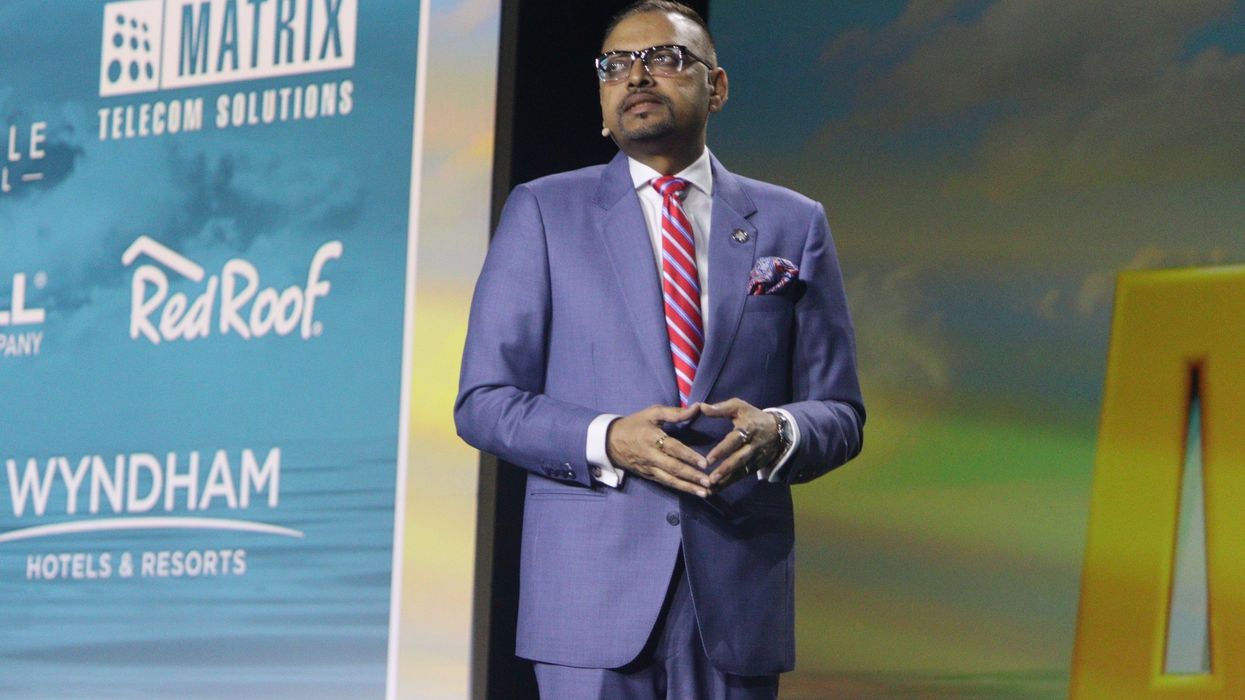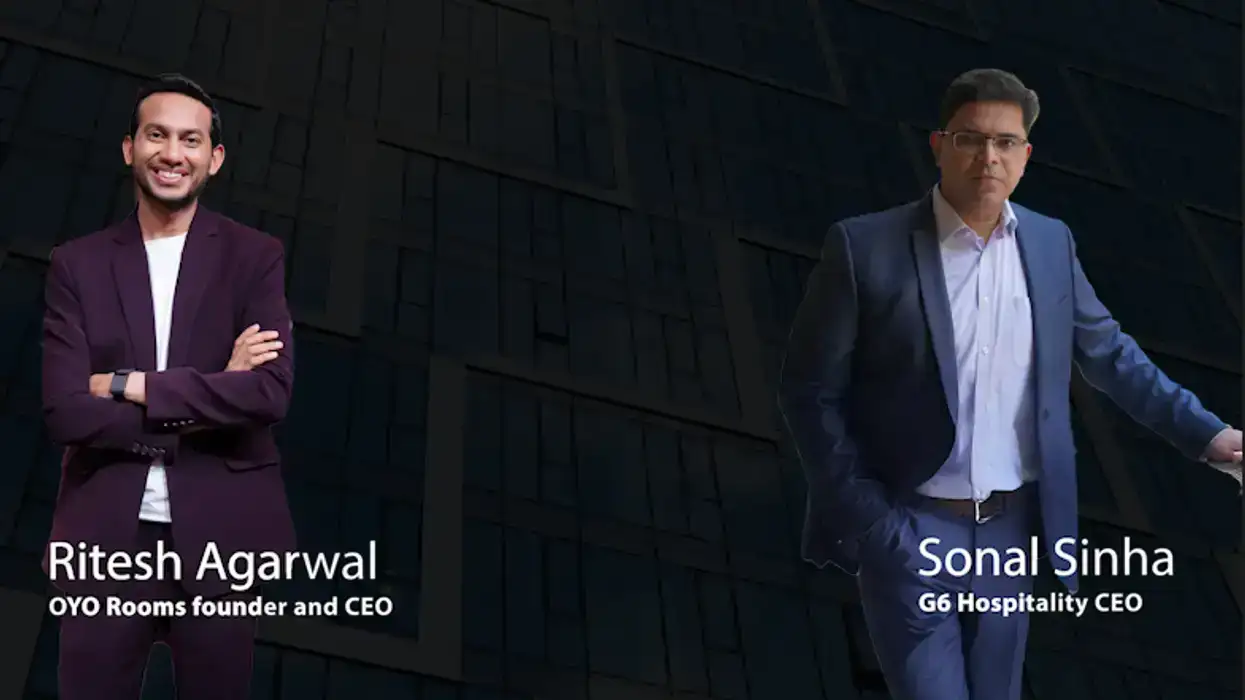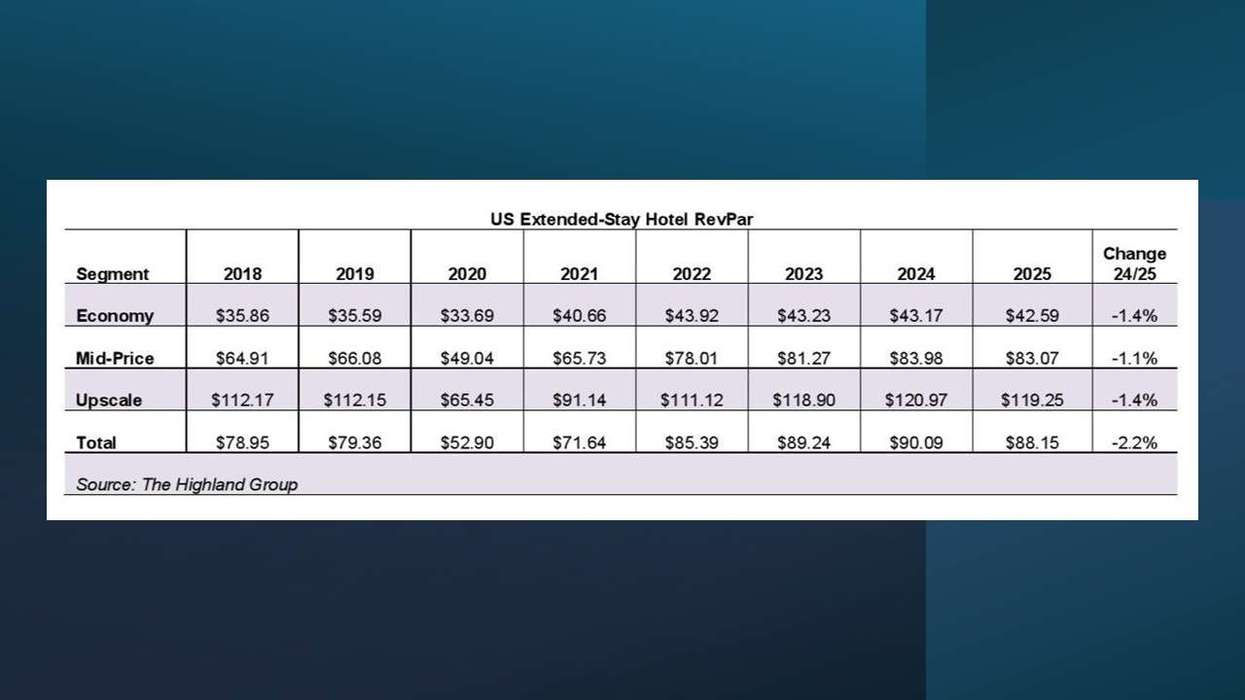AT THE 2024 AAHOA Convention & Trade Show held last week in Orlando, Florida, history was being made at the same time it was being recalled. Miraj Patel assumed his role as the youngest chairman the association has had, while his predecessor Bharat Patel and AAHOA President and CEO Laura Lee Blake spoke on the legacy that led to the association’s current success.
AAHOACON24, the 35th national conference for the association, saw more than 7,000 registered attendees and 524 exhibitors at the Orange County Convention Center, blocks away from Disneyworld and Universal Studios. It included more than 44 education sessions and had two times the number of sponsors than in 2023 with 26. Event revenue was 6 percent higher than 2023 and 31 percent higher than in 2022. The tradeshow sprawled over more than 84,500 square feet of exhibit space.
In a speech during the first general session, Bharat presented his theory on what led to AAHOA’s current status: compound success.
Success breeds success
“Because AAHOA is forever growing and improving for our association and our members, success is an ongoing journey, a journey that will take us to greater heights and major milestones,” Bharat said. “Think of it in accounting terms. We're all familiar with the financial concept of compound interest. So, let me offer a new take on an old idea called compound success.”
Bharat said AAHOA has seen its highest record of achievements for the past 35 years.
“We are earning success today based on success achieved by all leaders and members who came before us,” he said. “These visionaries created a foundation of success for us on which we are standing today, on which we are building today, building on that foundation for future generations. And just like every layer of brick in your home is built on the previous layer, a whole lot is achieving layer upon layer upon layer of success that's carefully built on those who came before.”
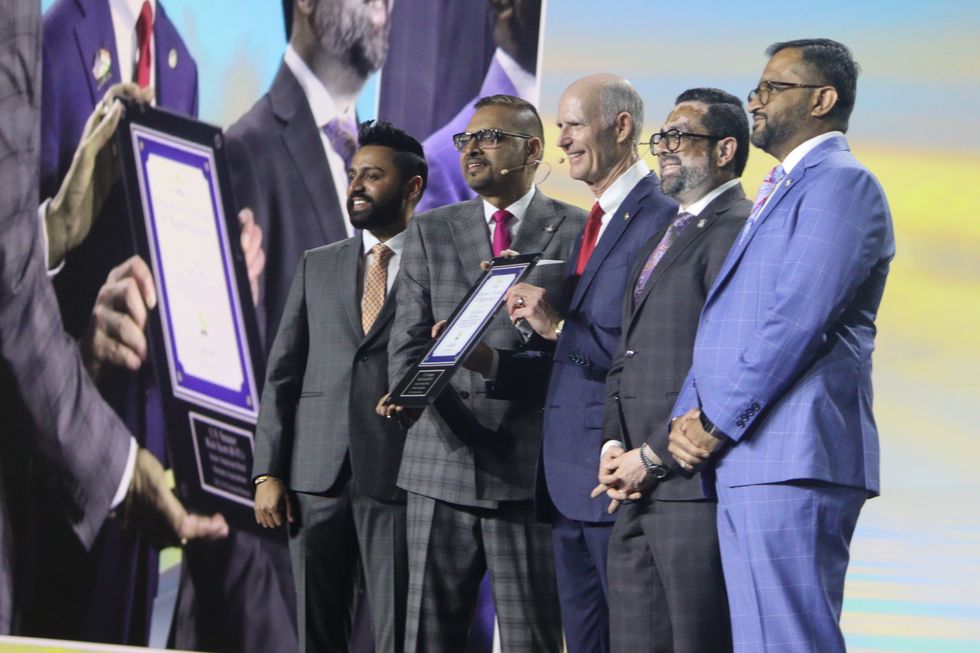
One indicator of that success is the fact that Indian Americans started as outsiders but now have increased their influence over the hospitality industry and society as a whole. That shows in AAHOA’s advocacy efforts, Bharat said.
“Government officials at all levels now pay attention when our members speak up and speak out,” he said. “Government agencies and legislators now come to us regularly to hear our opinion, learn from our expertise and understand our point of view. This leads to real results that positively impact the lives of our members.”
One example of that influence came as a result of Choice Hotels International’s recent failed effort to acquire Wyndham Hotels & Resorts. AAHOA spoke out against the proposed transaction to the Federal Trade Commission saying it would not pass antitrust review.
“Choice voluntarily decided to abandon its acquisition, but the situation also shows that government with its elected officials or regulators are forced to take action when concerned citizens are making their voices heard, loud and clear,” Bharat said.
Bharat gave six examples of how AAHOA’s legacy grew over the past year under his chairmanship.
- The launch of the new version of MyAAHOA.com.
- Raising more than half a million dollars in contributions for AAHOA’s political action committee.
- Holding 25 regional conferences and trade shows that helped almost 5000 hoteliers with professional education and networking.
- Holding the second annual HerOwnership conference to promote women succeed in the hotel industry.
- Launching the HYPE Partnership, which aims to help young professionals evolve.
- Continued to offer “back-of-the-house” tours for members of Congress and elected officials, so they can experience firsthand what it takes to run a hotel.
“Traveling the road to success has not been easy for either AAHOA or our members, and the journey hasn't been a sprint, it's been a marathon because building things that are worthwhile takes time,” Bharat said. “It takes hard work, it takes endurance and it takes an uncompromising commitment to our members.”
What AAHOA does today will determine it’s future success, Bharat said.
“Today's success is based on yesterday's success, and today's success will help build still further success tomorrow,” Bharat said. “Compound success has provided the framework for AAHOA’s progress during the past 35 years. It will shape our progress for the next 35 years and beyond.”
In closing, Bharat said there is always a price for taking action, but the same can be said for inaction, especially if it means letting inequality and inequity prevail.
“I can report to you today with confidence and pride that your board and I stay firmly focused on the philosophy of members first. We didn't just do what looked good or sounded good, we did what we believed was actually best for our members,” he said. “We didn't make watered down compromises and we didn't pursue weak party initiatives. Instead, we made decisions that will turn our owners into better, happier owners and more successful.”
A lesson in AAHOA’s history
Blake began her general session presentation by also highlighting the idea that AAHOA is defined by its members struggle to realize the American dream. It’s the story of immigrants who came to the U.S. “with only a suitcase and a hope for a better life,” she said, but who now own more that 60 percent of the hotels in the country.
It’s also a story her family shares, Blake said.
“My family also emigrated to the Americas in the 1900s. I am 100 percent Dutch,” Blake said. “My grandfather came over from Holland when he was only 17 years old. He barely had two pennies to rub together and only one suit to wear. He came through Ellis Island, made it to a small town in Iowa and started a family there. It's where I grew up.”
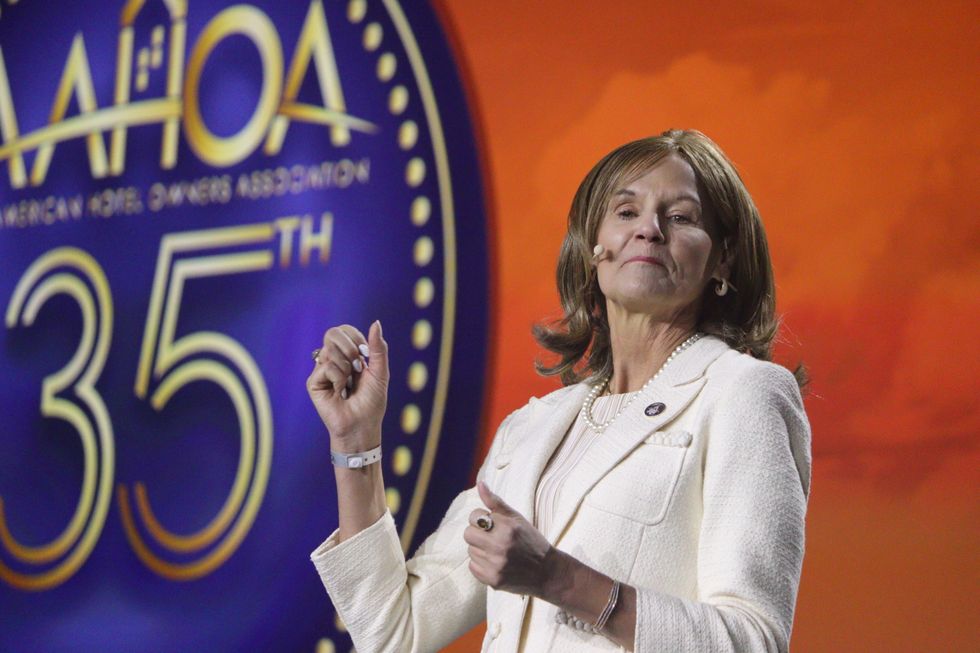
Her father was a Pontiac and Buick dealer and a General Motors franchisee, Blake said. In her childhood he faced many of the challenges as a franchisee that AAHOA members face on a daily basis.
“When I hear stories of our members getting their start in the business, cleaning toilets and making beds, I am reminded of the days when I used to have to climb up a ladder to wash the 20-foot showroom windows in my father's business, and clean the dirty pickup trucks of the farmers who brought them in for service,” Blake said. “We all started by rolling up our sleeves and tackling the issues head on. It's what I love about AAHOA, it is made up of members who had unique beginnings.”
Blake said she is reminded of the history of the association she represents every day as she walks to her office past pictures of AAHOA’s past chairs. Many of them she served as AAHOA’s attorney.
“It might seem trivial or even silly to some, but every morning, I say hi to them as I walk by,” Blake said. “It is a reminder of the great honor and privilege I have personally, but also that we all carry together to continue to build on the history of AAHOA’S leadership.”
She pointed out that AAHOA’s original purpose was to combat racism against Indian Americans that was rampant in the industry at that time. As the association’s attorney, she played an active role in that fight.
“I recall a period only 10 years ago, when ‘American owned’ signs started popping up across this country to distinguish and degrade AAHOA member owned hotels,” Blake said. “It was a practice that implied that these hotels were somehow better than those hotels owned by immigrants and was a threat to their livelihood. Again, I saw the strength and unity of AAHOA as we lobbied and educated the world that our members are loyal Americans who are achieved the true American dream.”
In 2007, past Chairman Mukesh Mowji and is then Secretary Tarun Patel asked Blake and her law department to prepare a progress report on fair franchising to evaluate if franchisers were aligned with AAHOA’s 12 Points of Fair Franchising. Later, past Chairman ChandraKant “CK” Patel and Blake traveled the country and met with the franchisers to discuss their practices.
“Then there was a time when a noted leader of the franchise advisory council made cutting discriminatory remarks against Indian hoteliers. At first, the person denied making such comments, but Past Chair Jimmy Patel had recorded them on his phone, so the evidence was there,” Blake said. “I wrote several strongly worded letters to the groups involved. I think that was actually the only time that our then President Fred Schwartz did not ask me to soften the tone because we were all so highly offended. I actually teared up, because the discrimination was real, and it was personal.”
Charity v. Philanthropy
One of the keynote speakers at AAHOACON24 was Dr. Kiran Patel, AAHOA lifetime member, philanthropist, serial entrepreneur, hotelier and cardiologist. Born in Zambia, Africa to Asian-Indian parents, Kiran and his wife Pallavi are the founders of the Drs. Kiran & Pallavi Patel Family Foundation Inc., focused on promoting health, education and culture around the world, particularly in Florida, India and Africa.
He is a graduate of Cambridge University and The University of London, and he studied medicine at Gujarat University in India. He currently lives in Tampa, Florida.
“I, like most of you, believe that if you can dream something, you can achieve it,” Kiran said to the crowd at AAHOACON24. “What I want people to know is that money and wealth can create comfort and convenience, but remember, they never bring fulfillment.”
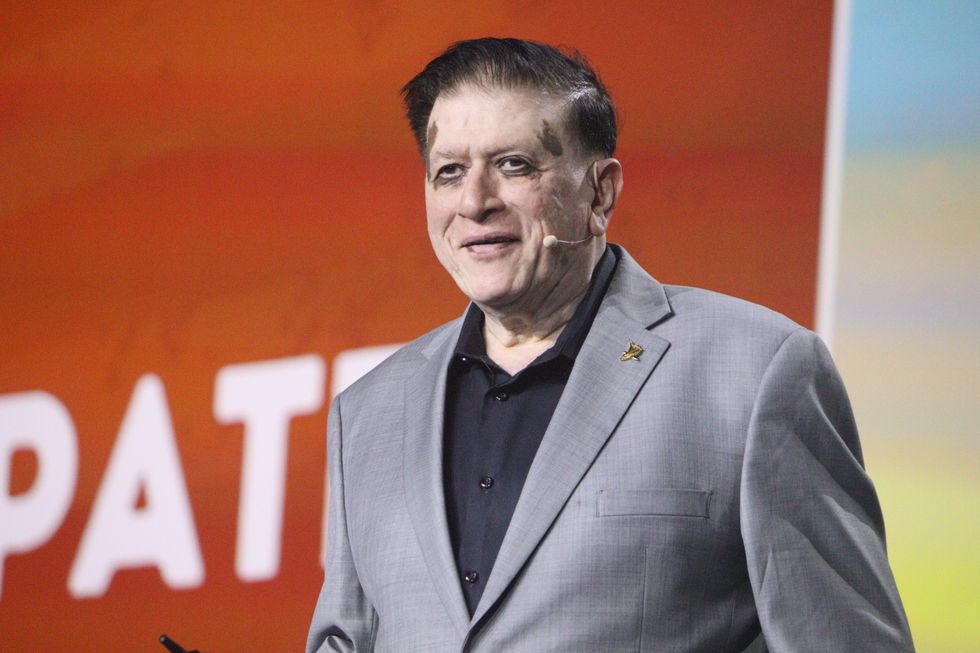
The doctor focused his speech on difference between charity and philanthropy.
“This is important, because charity is essential, it's necessary. But more important is the long-term solution,” Kiran said. “If there is a problem, of course, you need some short term help. But as you see, in charity, you have social service. In philanthropy, you make a social change. You can be reactive in charity, money or to be proactive in philanthropy. And in charity, you will have individual responses, while in philanthropy, collective organized response in charity, and I do believe is that you may create dependent communities. But if you're in philanthropy, you can create empowered, independent communities.”
Philanthropy is a “true cradle to grave strategy to make sure that an individual is healthy and educated,” Kiran said. For an example, he told the story of a single child his organization helped save from starvation.
“Now one who would stop there, that is what I call charity, that you save one life and you are happy,” Kiran said.
Philanthropy addresses the needs of the entire impoverished community in which the child lives, Kiran said. One way his foundation supports permanent change is by supporting medical schools. Kiran said his “Patel college” in the U.S. graduates 800 doctors a year.
“And I have 200 students in India, making it 1000 doctors graduating annually from Patel institutions,” he said.
To measure the impact from the 1000 graduates a year from Patel colleges, Kiran said by 2076 that will come to 50,000 physicians practicing all globally seeing possibly 2.5 million patients daily.
“I like to call myself a global citizen. And I've been blessed enough that I have been able to contribute to the three continents that made me who I am,” Kiran said.
Kiran finished his speech with a philosophical reference.
“I will end here by telling you that vision without action is merely a dream. action without vision just passes time, vision with action can change the world,” he said.
